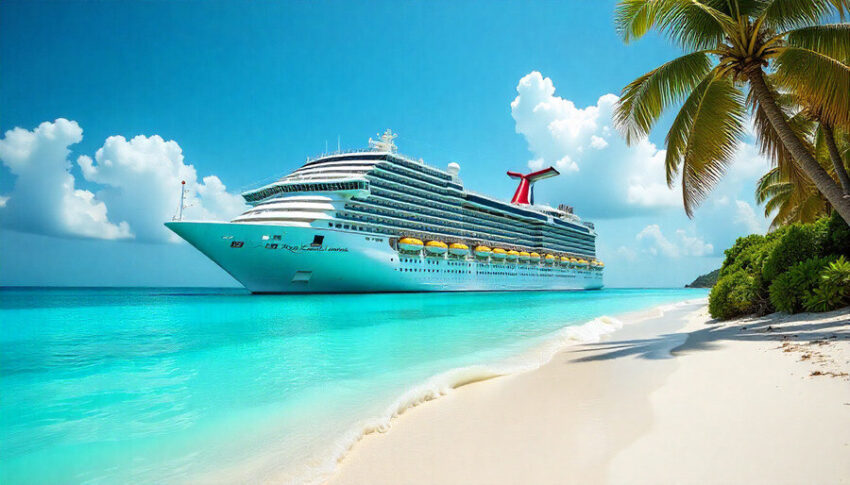Published on
August 11, 2025 |

Guests of Royal Caribbean will soon have to pay a new seasonal cruise tax for traveling to popular Greek destinations which will take effect in 2025. The Greek government initiated this policy as part of its attempt to control overtourism and protect the natural and cultural beauty of its famous islands such as Mykonos and Santorini. The cruise tax will attempt to control the amount of mass tourism and ensure that the revenue collected will be used to enhance the region’s infrastructure which will help support sustainable tourism. The fee will change according to the specific Greek port and the cruise will be seasonal. This will help bring a balanced distribution of visitors in both peak and off-peak seasons. The goal of Greece with this policy is to improve the tourism experience while protecting the iconic locations for future generations.
The seasonal cruise tax aims to mitigate the environmental impact caused by mass tourism and promote a more sustainable approach to travel. The Greek government has emphasized that the revenue generated from these fees will be used to improve local infrastructure, enhance visitor experiences, and ensure the preservation of Greece’s natural beauty and cultural heritage. Royal Caribbean expressed support for this initiative, stating that it aligns with the company’s commitment to promoting sustainable tourism in the region.
The new cruise tax will be enforced starting from sailings that depart on or after August 1, 2025. Passengers planning to visit Greek destinations during their voyages will notice the fees applied to their bookings. This tax will vary depending on the time of year and the specific Greek port being visited. The introduction of the new fees is expected to impact many travelers heading to iconic Greek islands, such as Mykonos, Santorini, and other popular spots, with varying rates for different periods of the year.
For those traveling to Mykonos and Santorini between June 1 and September 30, the seasonal tax will be 20 euros per person. These islands are among the most visited in Greece, and the higher fee is in line with the peak tourist season, which sees the highest volume of visitors. For other ports in Greece during the same period, the tax will be 5 euros per passenger.
The seasonal tax will also be applicable during the shoulder seasons, with adjusted rates for travel in April, May, and October. From April 1 to May 31, as well as in October 2025, travelers heading to Mykonos and Santorini will incur a charge of 12 euros per person. For other Greek ports during these periods, the fee will be 3 euros per passenger. These shoulder seasons, typically less crowded than the peak summer months, see a decrease in visitor numbers, which is reflected in the lower tax rates.
The off-season months of November through March will see a further reduction in the cruise tax. For visits to Mykonos and Santorini, the fee will be 4 euros per person, while visits to other Greek destinations will be charged at a rate of 1 euro per passenger. This is part of Greece’s strategy to encourage tourism during the quieter months while keeping the environmental impact lower due to fewer visitors. It is also an effort to spread the economic benefits of tourism throughout the year, helping businesses in both high and low seasons.
Passengers who have made bookings after September 20, 2024, will find that the new taxes are already included in the taxes and fees section of their invoices. These charges have been integrated into the total booking price, so travelers will not be required to make any additional payments for the seasonal fees when boarding.
For guests who have already paid the taxes with their booking, Royal Caribbean will adjust the fees according to a monthly forecasted rate. This approach guarantees that any changes in the fees over time are managed in a consistent and predictable way.
If passengers decide to stay onboard and not disembark at the Greek ports during their cruise, the seasonal cruise tax will be automatically refunded to their onboard accounts at the end of the voyage. This ensures that passengers who do not visit the ports are not charged the fees.
However, for those who booked their cruises before September 20, 2024, the new seasonal taxes will need to be paid before disembarking at the Greek ports. This ensures that the tax is accounted for and collected directly by the local authorities before passengers can explore the islands.
The new seasonal cruise tax marks a shift for the Greek government in trying to balance the advantages of tourism with the protection of the environment and local culture. This move also supports the emerging focus towards sustainable tourism practiced by cruise lines such as Royal Caribbean. As these fees are implemented, passengers are advised to account for these expenses when visiting Greece’s top tourist sites, thus aiding the sustainable tourism development in the region.






